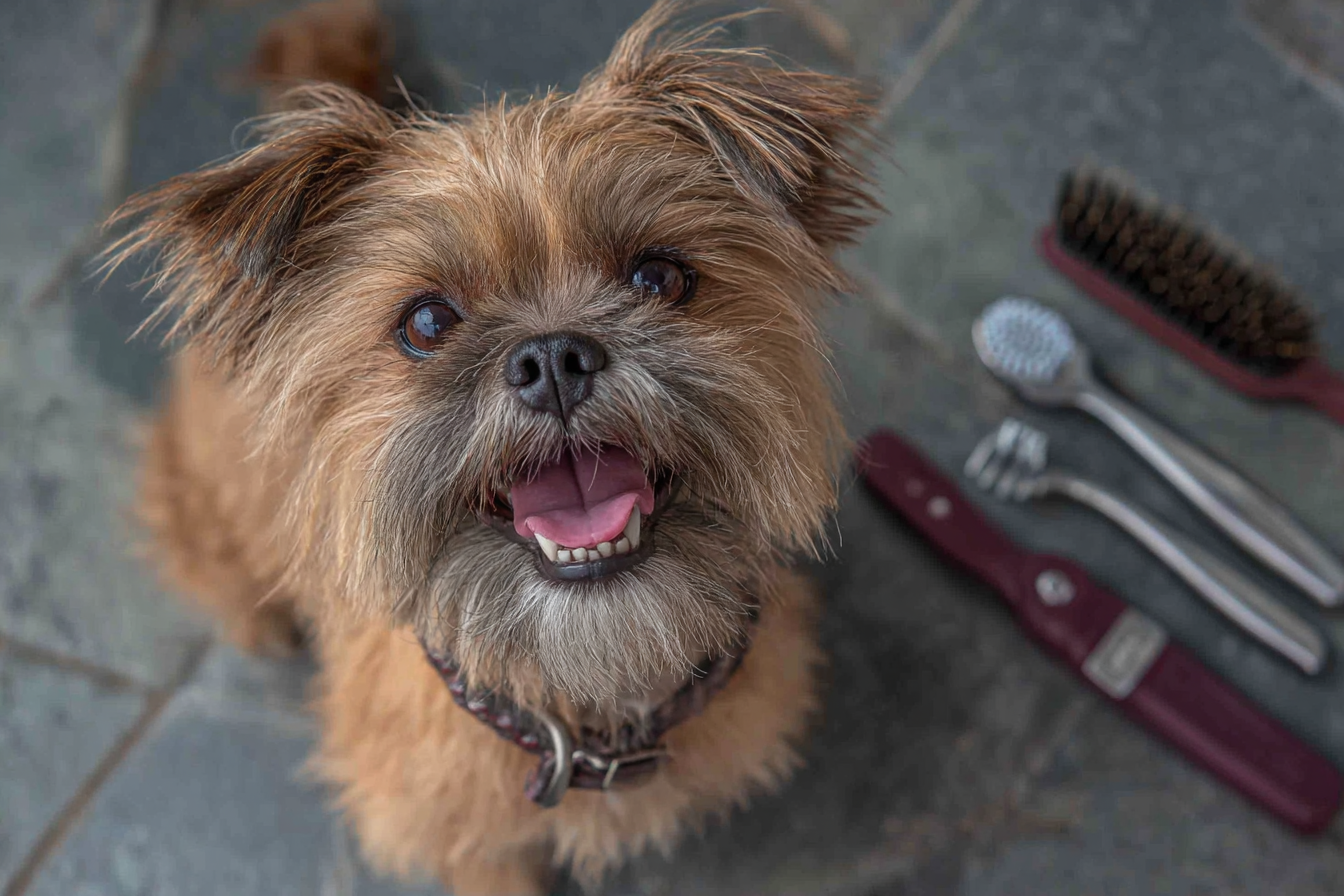Dental health is a crucial aspect of your Brussels Griffon’s overall well-being, yet it’s often overlooked by many dog owners. Just like humans, dogs can suffer from a range of oral problems that, if left untreated, can cause pain, infections, and other serious health complications. For Brussels Griffons, maintaining good dental hygiene is especially important due to their small mouths and specific breed characteristics. In this guide, we’ll walk you through everything you need to know about caring for your Brussels Griffon’s teeth, from daily routines to recognizing when professional help is needed.
Why Dental Care Is Essential for Brussels Griffons
Dental care goes beyond just keeping your Brussels Griffon’s breath fresh. Healthy teeth and gums play a significant role in their ability to eat, chew, and enjoy daily activities without discomfort. Poor dental health can lead to plaque and tartar buildup, which foster bacteria growth. This can cause gum inflammation (gingivitis), periodontal disease, and even tooth loss. Moreover, untreated oral infections can spread harmful bacteria through the bloodstream, affecting vital organs such as the heart, liver, and kidneys.
Brussels Griffons are predisposed to dental problems because of their small size and unique facial structure. Their compact jaw often means their teeth are crowded, making it easier for plaque to accumulate in hard-to-reach places. This breed also tends to develop early tooth decay compared to larger dogs. Therefore, regular dental care and vigilant monitoring are essential to keep their smiles healthy and pain-free.
Common Dental Issues in Brussels Griffons
Understanding what dental problems commonly affect Brussels Griffons can help you spot signs early and take appropriate action.
- Plaque and Tartar Buildup: Plaque is a sticky film of bacteria that forms on the teeth, which hardens into tartar if not removed. Tartar accumulation irritates the gums and promotes infection.
- Gingivitis: This is the inflammation of gum tissue caused by bacterial infection. It may cause redness, swelling, and bleeding gums.
- Periodontal Disease: When gingivitis progresses untreated, it damages the tissues and bones supporting the teeth. This can lead to tooth loosening and loss.
- Tooth Fractures: Because Brussels Griffons have delicate teeth, chewing on hard objects like bones or toys can lead to fractures or chips.
- Retained Baby Teeth: Sometimes, baby teeth don’t fall out as they should, crowding adult teeth and increasing the risk of dental disease.
Recognizing these conditions early helps ensure your dog receives timely care and avoids pain and discomfort.
Establishing a Daily Dental Care Routine
One of the most effective ways to protect your Brussels Griffon’s dental health is by incorporating daily care routines. Brushing your dog’s teeth regularly is the gold standard—ideally every day or at least several times a week.
Start by choosing a quiet, comfortable space where your dog feels relaxed. Introduce the toothbrush and toothpaste gradually, using positive reinforcement like treats and praise to create a pleasant association. At first, focus on just a few teeth or gums to build your dog’s trust. Consistency is key; over time, your Griffon will become more accustomed to the process.
Besides brushing, you can also:
- Use dental wipes or pads meant for dogs if brushing is difficult.
- Provide dental chews or toys designed to reduce plaque and massage gums.
- Incorporate a dental diet or water additives recommended by your vet to support oral hygiene.
These additional tools are helpful, but they should complement, not replace, regular tooth brushing.
Choosing the Right Toothbrush and Toothpaste
Using the proper dental products tailored for your Brussels Griffon’s needs makes the brushing experience safer and more effective.
Toothbrush Selection
Because Brussels Griffons are small dogs, it’s important to use a toothbrush designed for small breeds or puppies, which have softer bristles and a smaller brush head. There are several types of toothbrushes to consider:
- Finger Brushes: These fit on your finger and offer greater control, allowing you to gently brush your dog’s teeth.
- Small-headed Toothbrushes: Traditional brushes with a smaller head designed for pets.
- Electric Toothbrushes for Dogs: Some dogs tolerate battery-operated brushes, which can be more efficient at plaque removal.
Toothpaste Options
Never use human toothpaste for your Brussels Griffon, as it often contains fluoride and other ingredients toxic to dogs. Instead, opt for specially formulated canine toothpaste, which is safe to swallow and often comes in flavors dogs enjoy, like poultry or peanut butter. Many dental pastes also contain enzymes or antibacterial agents to enhance plaque removal.
The Role of Professional Dental Cleanings
While daily home care is vital, professional veterinary cleanings are equally important. Vets can thoroughly clean below the gum line, where plaque and tartar hide and can’t be reached with regular brushing. These cleanings usually require anesthesia to ensure the dog’s comfort and safety while the vet scales and polishes the teeth.
Most Brussels Griffons benefit from veterinary dental cleanings at least once a year, though your vet may recommend more frequent visits depending on your dog’s dental status and risk factors. During these appointments, the vet can also check for infections, extracted damaged teeth if necessary, and provide guidance on at-home care improvements.
Spotting the Signs of Dental Problems
Being proactive means recognizing when your Brussels Griffon might have oral health issues so you can seek veterinary care promptly. Watch for these common signs:
- Bad breath (halitosis) that persists despite brushing
- Red, swollen, or bleeding gums
- Difficulty eating, chewing on one side, or dropping food
- Excessive drooling or pawing at the mouth
- Loose, broken, or missing teeth
- Changes in behavior such as irritability due to mouth pain
If you notice any of these symptoms, make an appointment with your veterinarian right away. Early intervention can prevent more serious problems and alleviate your dog’s discomfort.
Keeping Your Brussels Griffon’s Smile Bright and Healthy
Establishing a consistent dental care routine tailored to the needs of the Brussels Griffon is one of the best ways to ensure your furry friend enjoys a healthy, pain-free life. Remember to brush their teeth regularly with appropriate tools, provide dental chews and toys, and schedule regular veterinary dental check-ups. By staying attentive to the signs of oral health issues and acting quickly when problems arise, you’ll keep your Brussels Griffon’s smile bright and their overall health in top shape.
Healthy teeth mean a happier, more comfortable dog—and that’s a reason to smile for both of you!







